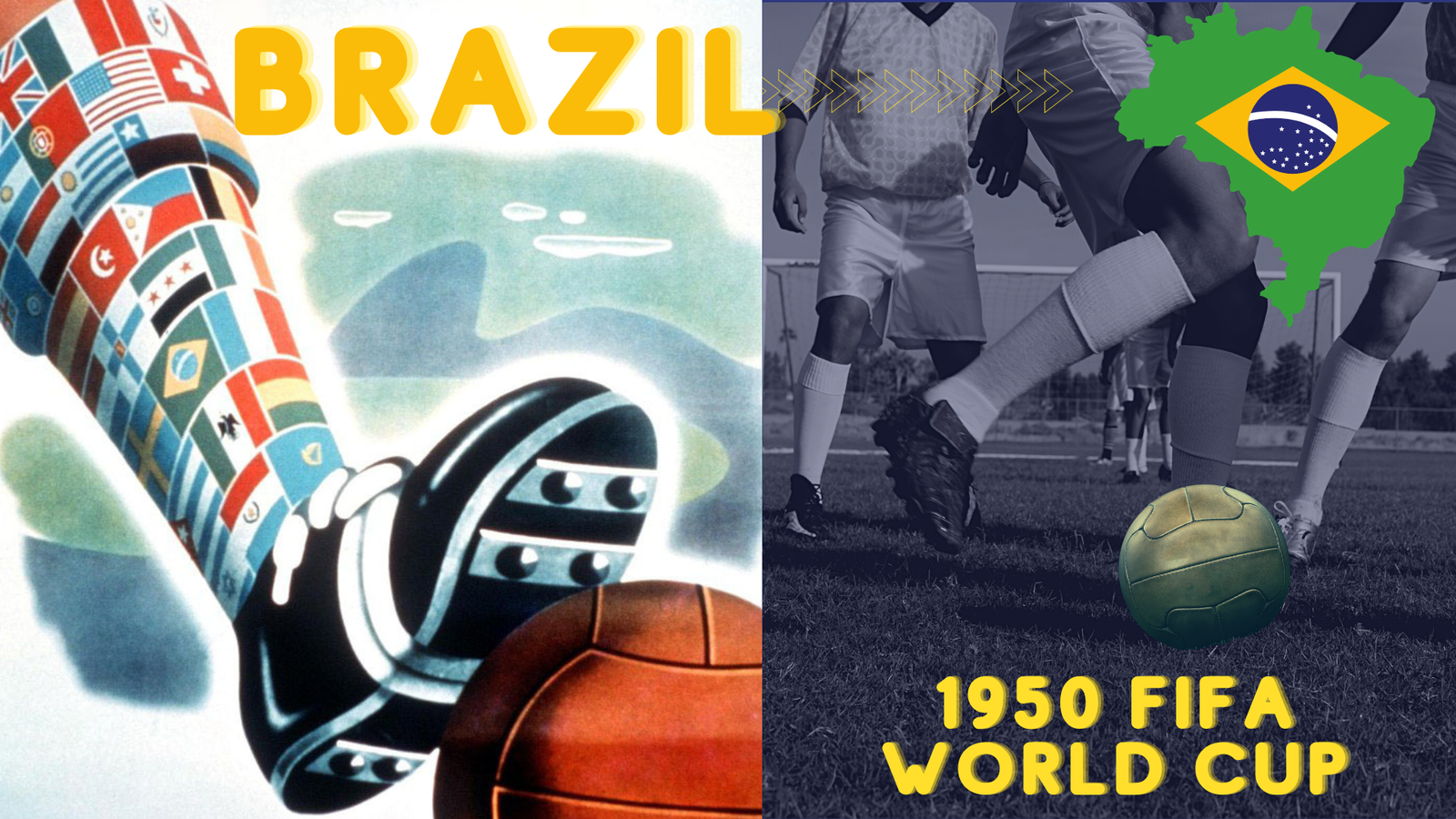FIFA World Cup 1950 was the fourth edition of the FIFA World Cup, the international football championship for men's national teams. It was held in Brazil from 24 June to 16 July 1950. A total of 22 teams entered the tournament, which was won by Uruguay after they defeated hosts Brazil 2–1 in the final match. This was the only tournament not decided by a knockout stage. It was also the first tournament where the trophy was referred to as the “Jules Rimet Cup”, after FIFA president Jules Rimet.
A new playing format was proposed by the Brazilian organizers of the tournament to maximize matches and ticket sales since the stadium and infrastructure were so costly. The 13 teams were divided into four first-round groups of four teams, with the winner of each group advancing to a final group stage, playing in a round-robin format to determine the cup winner. A straight knockout tournament, as had been used in 1934 and 1938, would have featured only sixteen games (including the third-place playoff), while the proposed two rounds of the group format would guarantee thirty games, and thus more ticket revenue. However, due to the withdrawal of four teams, the number of matches was reduced to 22 matches.

After the draw, which was held on 22 November 1949 at the FIFA headquarters in Rio de Janeiro, four teams withdrew from the tournament. Turkey withdrew on 17 December 1949, citing financial problems, while India, Scotland, and France withdrew on 18 and 19 December 1949, respectively. As a result, the number of teams participating in the tournament was reduced to 13. After the group stage, the four top teams of each group qualified for the Final Robin Round. The teams included in this round were Uruguay, Brazil, Sweden, and Spain.
An estimated 200,000 people attended the final match, which was held at the Maracanã Stadium in Rio de Janeiro. Brazil had been unbeaten in the previous matches at the Maracanã, but since the stadium had been reconfigured for the tournament. The match started well for Brazil, with Friaça putting them ahead in the 47th minute. Uruguay equalized in the 66th minute through Schiaffino, and the match looked to be heading for a draw. However, in the 79th minute, Uruguay were awarded a free-kick just outside the Brazilian penalty area. Ghiggia took the free-kick, and his shot went past the Brazilian goalkeeper to give Uruguay a 2–1 lead. Brazil was unable to score an equalizer, and so Uruguay won the match and the World Cup. The Brazilian fans in attendance were so upset that they began to boo and jeer their own team. The term “Maracanaço” has come to symbolize this moment in Brazilian history, and it is still used today to describe any football match that ends in a shocking upset.
